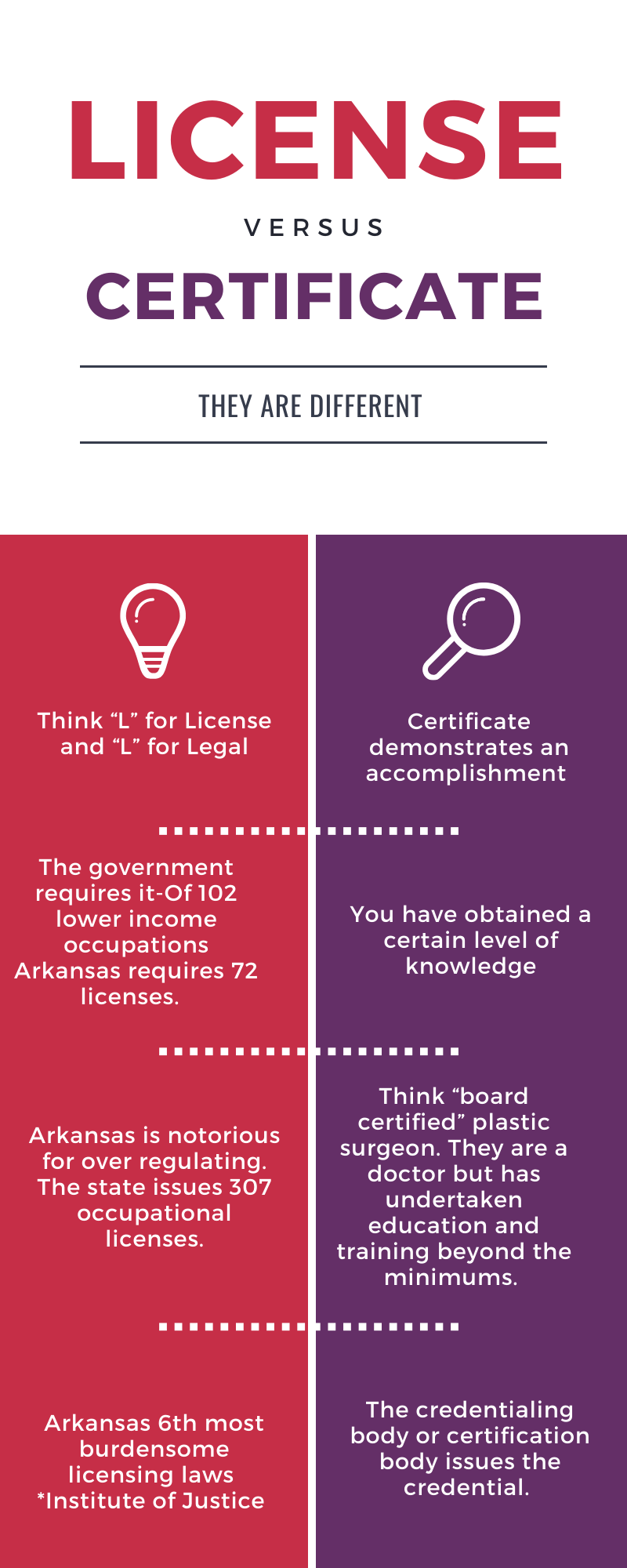License Versus Certification

What is the difference between a license and a certification? A license is required by law. Think “L” for Law. A certification is when a non-governmental organization recognizes someone for meeting certain goals or attaining a level of training or education. The best example is a doctor. Let’s talk about plastic surgeons. A board certified plastic surgeon is a M.D. who has earned an extra set of initials from a professional membership association. The idea is pretty simple and powerful. A group of professionals decide to form a membership organization, collect dues, and offer training to members.
Some certifications do not require a license. I am a lactation consultant or IBCLC. The IBCLCE issues the credential, IBCLC, which stands from International Board Certified Lactation Consultant. The “E” stands for examiners. Some professional membership organizations or “credentialing bodies” have been around a long time. The history of some is fascinating. When the Sheppard-Towner Act was passed in 1921 it came after the full enfranchisement of women and was considered social security legislation. The Act was responsible for the medicalization of birth and it was political. The American Medical Association saw it as a socialist threat to its autonomy but the AMA Pediatric Section was in favor of it. This difference of opinion led to the Pediatric Section splitting off and forming the American Academy of Pediatrics that we know today.
If you hold a license and your profession doesn’t regulate the license holders directly you should strongly consider joining a professional membership association or forming one! In Arkansas there is a long list of professions regulated by Arkansas Department of Health bureaucrats instead of actual members of the profession.

